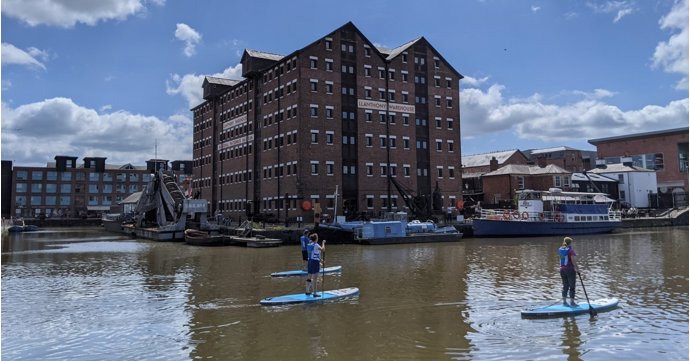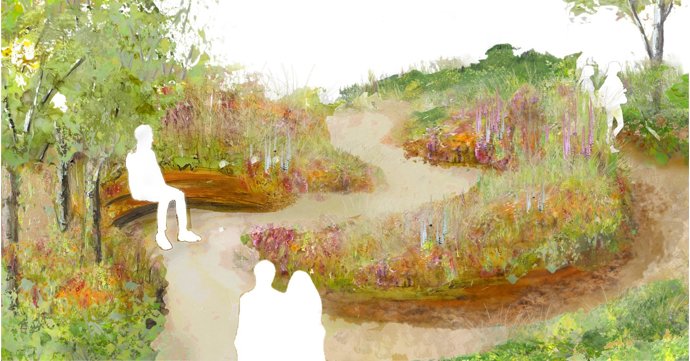From filing your nails correctly to treating sports injuries, SoGlos speaks to Supafoot Cheltenham about what podiatry actually is and why it’s so important to help keep your feet healthy.
About the expert – Sam Chidwick from Supafoot Cheltenham
An expert podiatrist on the Supafoot Cheltenham team since 2016, Sam Chidwick specialises in treating sports injuries and is a keen runner and qualified personal trainer.
From footcare, chiropody and bio-mechanics to nail surgery and even shockwave therapy for injuries, Supafoot Cheltenham, offers a wide range of podiatry treatments and expertise from its Berkeley Street clinic.
So, what exactly does a podiatrist do?
A podiatrist is a specialist in the foot, ankle and lower limb, so we deal with all problems related to those areas of the body.
We often get asked what’s the difference between a chiropodist and a podiatrist, and there isn’t much other than that a podiatrist is trained to degree level. Both have to be suitably qualified and undergo ongoing training and professional development.
Podiatry encompasses more advanced skills such as biomechanical assessments, specialist sports injury treatment and minor surgery. We can also help people with conditions like Diabetes that affect the feet and people with foot deformities associated with conditions like Rheumatoid arthritis too.
What common foot and ankle problems do you treat?
There’s a very broad spectrum. The problems we treat are really diverse, from routine things like toenail care right up to Team GB athletes looking at sports performance and injuries.
Common skin and nail problems we can treat in the Supafoot Cheltenham clinic are corns, where high pressure can cause a hard, painful lump of skin, and in growing toenails which are often caused by poor cutting technique or people’s footwear choices. These sorts of problems can sometimes require a minor surgical procedure to correct.
From a biomechanics perspective, heel pain is quite common, and this is something that can come on quite gradually and go on for a long time until it becomes unbearable. To treat this, we’d be looking at the way someone walks, looking at the muscles and bones in their feet, and offering exercises to try and alleviate that pain. We can also recommend insoles to go into their shoes to help too.
We have a list of the most common foot problems we see on our website, so people can take a look at that to see the full list of services we can offer.
If someone has a concern about their foot health, what should they do?
With the current COVID-19 situation obviously there are restrictions in place, so what we’re suggesting at the moment is to give the clinic a call or drop us an email to see if we think we can help, as we’re still able to offer initial advice this way. This is something we actually offer all the time, but it’s especially useful while the clinic is closed for appointments.
The worst thing is when people try to treat things themselves at home. A lot of the information you might find on the internet is poor quality, so unless you’ve been given advice from a professional or you know what you’re doing, you can actually do more harm than good. Over the counter products can be absolutely fine, but you need to make sure you know what treatment you need.
You’re currently offering online video consultations in response to the COVID-19 restrictions. How does that work?
On the Supafoot website you can book yourself an online consultation with a timeslot to talk to a podiatrist over video, with the main benefit of video being that the podiatrist will actually be able to see your foot problem. A lot of our job is hands on, but we can still offer really good quality advice during these video consultations.
We also have things like stretching and exercise videos that we can send out via email following a video consultation, so people have got a tailored programme to follow from home. All the information is shared through secure software so it’s safe.
During the Coronavirus lockdown, people are still able to do daily exercise outdoors. What advice would you give for people who are walking or running to keep fit?
I go running nearly every day and I’ve seen a lot more people out running than I do usually. More people are perhaps trying running for the first time or are running outdoors when they would usually run on a treadmill, which is very different, so more people may be experiencing running or walking related foot and shin pain.
Most importantly, if you are going out running, make sure you’re doing it in running trainers. There are lots of different types of trainers out there and not all of them are appropriate for running, so you want to make sure you’ve got a comfortable pair of running shoes that lace up and have a supportive sole on them. If you’ve dug some trainers out of the cupboard that you’ve had for years, check the soles on them before you wear them. If the sole is worn down, especially on one side for example, order some new ones, as this sort of wear throws your ankle and knee out of line, which can cause injuries.
Likewise with walking, pain in the heels or balls of the feet when walking can often be caused by shoes that have soles that are too thin or too flexible, so wearing a pair of running trainers or walking shoes can make you a lot more comfortable.
If you have started to experience any pain because of walking or running, then you can book an online consultation so we can talk through any symptoms, take a look at your shoes, if you’ve got a partner at home you could even get them to video you walking in them so we can take a look at that, and suggest some good warm up and cool down exercises which could help prevent injury.
Do you have any good advice on taking care of your feet as we head into summer?
As the weather gets nicer, people wear things like flip flops and sandals more which can lead to splitting skin on the heels or between the toes, so it’s good to take extra care of your feet as we come into the summer months.
In fact, many problems can be avoided with the right footwear. Ill-fitting shoes, shoes with very thin soles like pumps and high heels can cause issues, and wearing any type of shoe too much can put increased stress on your feet. Wearing the wrong shoes can also make existing problems like heel pain worse, so try to make sure that you wear well-fitting shoes that fasten securely. Ideally your toes need to have wiggle room, but the shoe shouldn’t feel loose or slip around.
A really good tip when shoe shopping is to go in the afternoon when your feet have swollen a little bit, as this is something that happens during the day, so your feet will be at the biggest they get.
What are your top tips to keep your feet healthy?
A lot of foot problems often come down to hygiene, so making sure that you wash your feet regularly with mild soap, clean in between the toes, and dry your feet properly before putting socks and shoes back on. Problems like athlete’s foot or damaged skin often occur because people aren’t drying their feet properly and are walking around with damp feet inside their shoes, which doesn’t help your skin.
You should change your socks at least once a day, more if you tend to get hot. Natural fibres like wool or cotton are advisable especially if you are prone to sweaty feet. Rotating your shoes will really help with this too, so try to avoid wearing the same pair of shoes every day so they get a chance to dry out in between wears.
Another key point is moisturising the feet. It doesn’t have to be a specialist foot moisturiser, a simple non-perfumed moisturiser will work, just try not to put it between the toes. We advise moisturising your heels and the tops and soles of your feet before bed to rehydrate the skin ready for the next day.
Toenail care is important too. You want to be cutting your toenails square across, don’t cut or dig down into the corners. If you’re concerned about cutting them, or if you’ve got thick toenails, the safest thing to do is actually file your nails with a heavy duty nail file, again square across the top.
Our website has loads of information on common foot problems and the services we can offer, so I’d encourage people to take a look there first, then book an online consultation if they’ve got any concerns at all, and we’ll be happy to help.


















